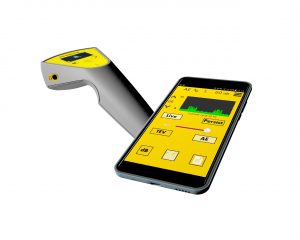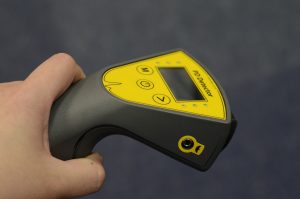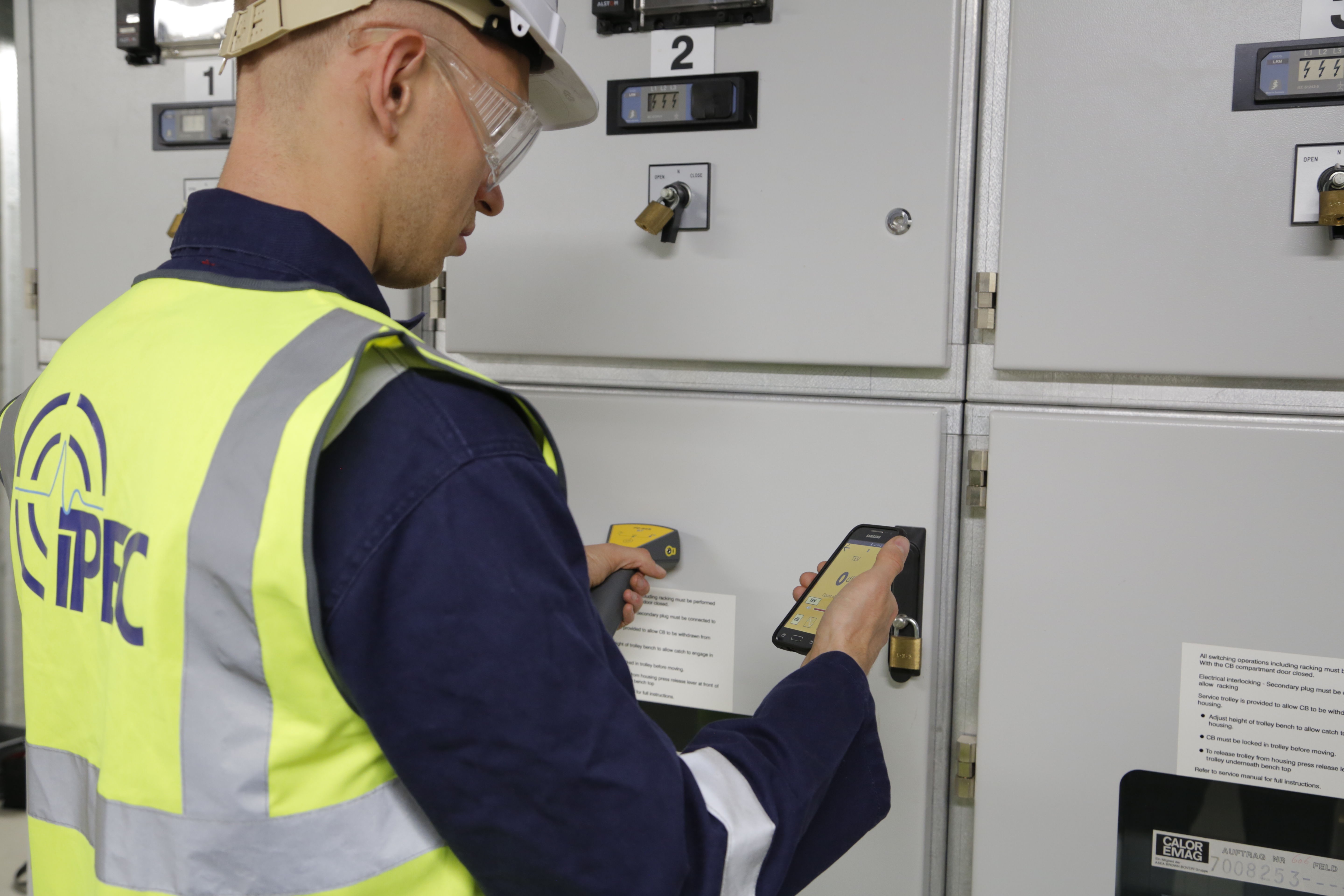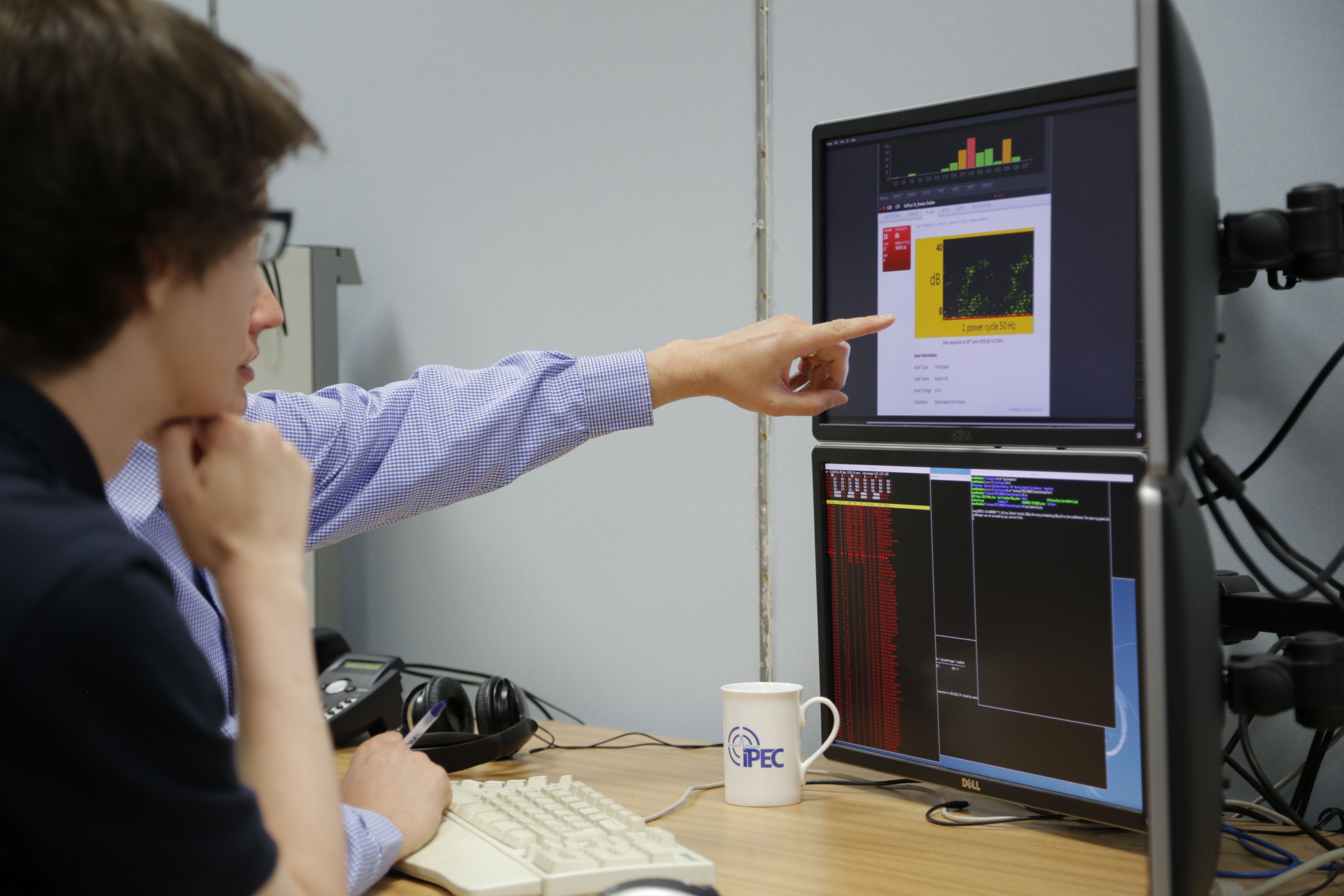Handheld Partial Discharge Detector with Data Synchronisation
The PD Detector is an on-line partial discharge spot tester for HV assets. The instrument detects TEV signals generated by internal discharge in Air Insulated Switchgear (AIS), acoustic discharge generated by surface tracking or corona, high frequency signal generated by cable partial discharge, and ultra-high frequency signal generated by internal discharge in Gas Insulated Switchgear (GIS). A mobile device receives data directly from the instrument for display and synchronisation with a central server.
- Data synchronisation to central server
- Log and trend PD activity against particular assets
- Data integration with asset management systems
- Automatic high PD alerts to asset management team live from site
- Integrated Noise Detection Algorithm helps avoid ‘False Positives’
Switchgear – Air Insulated (AIS)
Partial Discharge activity inside metal clad high voltage plant induces small voltage impulses called Transient Earth Voltages on the surface of the metal panels. TEVs travel around the surface to the outside of the switchgear, where they can be picked up externally using the PD Detector.
Defects on the surface of high voltage insulators are prone to a phenomenon known as surface tracking. Tracking causes carbon deposits that build up over time, ultimately leading to flashover and insulation failure. The PD Detector is highly sensitive to the ultrasonic emissions produced by tracking and enable the onset to be detected before insulation failure.
Switchgear – Gas Insulated (GIS)
IPEC’s UHF (Ultra High Frequency) sensor is used to detect PD in EHV cable terminations, GIS (Gas Insulated Switchgear), GIL (Gas Insulated transmission Lines) & GIT (Gas Insulated Transformers). The sensors pick up signals in the UHF range (200MHz-2.0GHz) and are mounted against the insulating barrier spacers that separate components of the HV asset.
Cable
Partial discharge activity in solid high voltage insulation induces small high frequency currents in the earth conductor of the electrical system. These impulses travel along the equipment earth to the substation earth. Using a high frequency current transformer, they can be detected as they pass through the CT.
Advantages of the PD Detector
- Rapidly survey the whole substation – detects MV and HV problems before they occur
- Remote Data Storage – ensure all data is recorded from each site test
- Trend – log the PD against individual assets and view data from each test ever conducted
- PRPD – Phase Resolved Partial Discharge (PRPD) can be displayed on the device or mobile app to help PD analysis
- Advanced Noise Separation – device detects PD in higher noise environments and automatically separate PD and Noise level, no more false positives
- Central data collection – all data stored on central server for analysis



